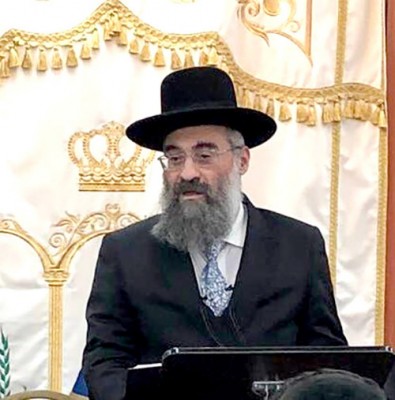
Some holidays are for remembrance and some are celebrated primarily with a Seudah (festive meal). But Yom Kippur stands alone as the holiday totally focused on prayer. The Talmud in Tractate Rosh Hashanah (Daf 19) raises a question between two seemingly contradictory verses in the Torah. One verse states “For what great nation is there that has a god so close at hand as is Hashem whenever we call upon Him (Devarim 4:7). Yet another verse states “Seek Hashem while He can be found, Call to Him while He is near (Yeshiah 55:7)”. Read plainly, one verse suggests that Hashem can be called upon at all times, and the other, that one should seek Him only ‘when he is near’. How do we resolve this? Does Hashem set times for our pleas or are our prayers always welcome?
The Talmud resolves this difficulty by qualifying the type of prayer. Hashem always accepts the prayer of a quorum. However, when a person prays individually for Hashem to accept his repentance, there are times when Hashem is, in a manner of speaking, ‘closer’ to the individual. The time where Hashem is ‘near’ is the 10 days between Rosh Hashana and Yom Kippur. During these days, the gates of heaven are open, and heartfelt prayers are accepted with special alacrity. During this special time period, the moment an individual repents is the same moment he is reaccepted under the ‘wings of the Shekhinah’.
The great genius Harav Akivah Eiger reveals an additional facet on this topic from the words of the Rambam regarding this subject. The Rambam writes “…and when is the individual accepted? Only when he prays out to Hashem with sincerity.” However, the Talmud above implies that praying with a quorum guarantees an answer from Hashem, even without sincere prayer on the part of the individual. So how does the Rambam understand the above Talmud if sincerity is always a key factor in any prayer? Harav Akivah Eiger derives from this that Hashem in fact answers the prayers of a quorum even if not everyone in the quorum prays with sincerity. The merit of the few who do pray sincerely uplifts the prayers of all the other
members.Therefore, our sages tell us that a person should always pray in a quorum. Sometimes, one finds it difficult to concentrate properly on his prayers, and yet, his prayers are still accepted because of the merit of his fellow worshipper. We should also mention that there are certain prayers which cannot be said by the individual. For example, the Aramaic sections of the Selihot are not allowed to be said without a quorum. Similarly, the Geonim and the Rashbam state that it is prohibited to recite the ‘13 Midot’ alone. However, the Rashbam does write that if an individual wants to say the ‘13 Midot’ he may do so if he sounds the Ta’amim (cantillation).
After all is said, it is clear from the many teachings of our sages that prayer with a quorum is always superior to praying alone. All the more so during the 10 days between Rosh Hashana and Yom Kippur, when the ‘King is in the Field’. May we all take advantage of the great opportunity afforded to us during this special time, and may all of our prayers be answered for good, Amen v’Amen.
By Adam Suionov
10 Special Days – Seeking Hashem When He Is Near
Typography
- Smaller Small Medium Big Bigger
- Default Helvetica Segoe Georgia Times
- Reading Mode











